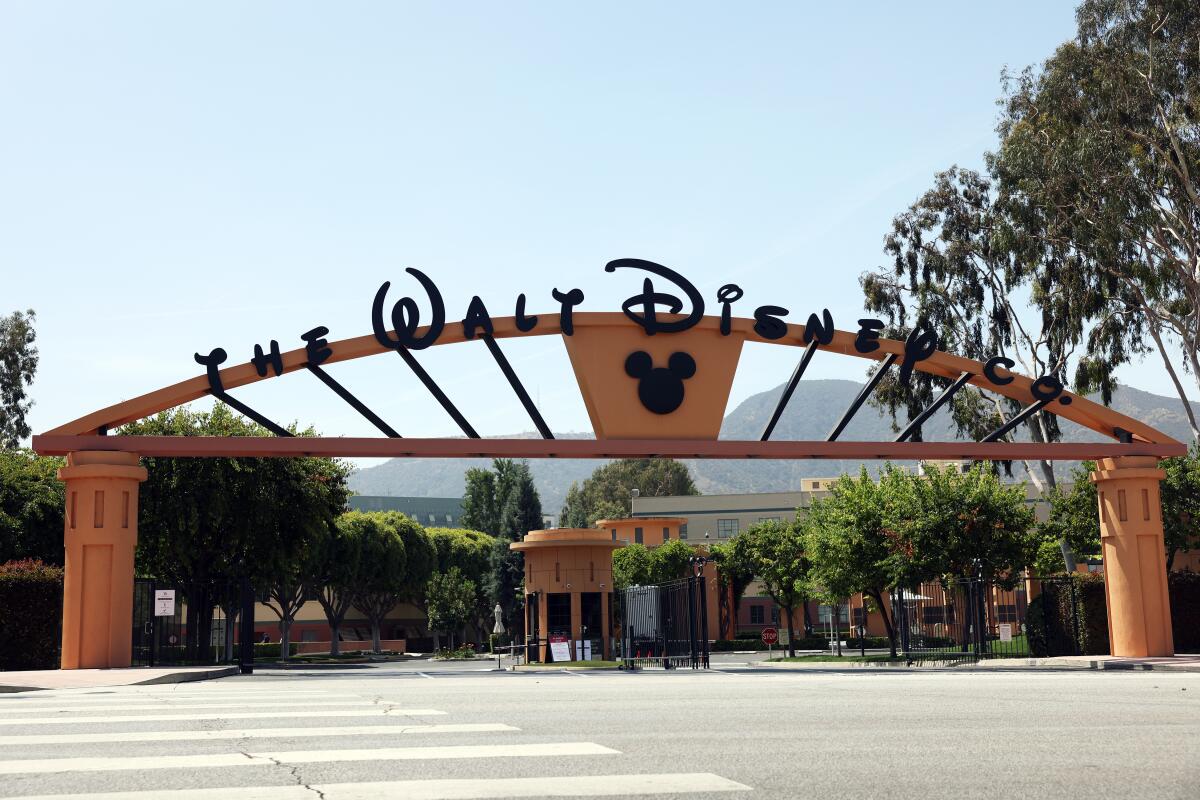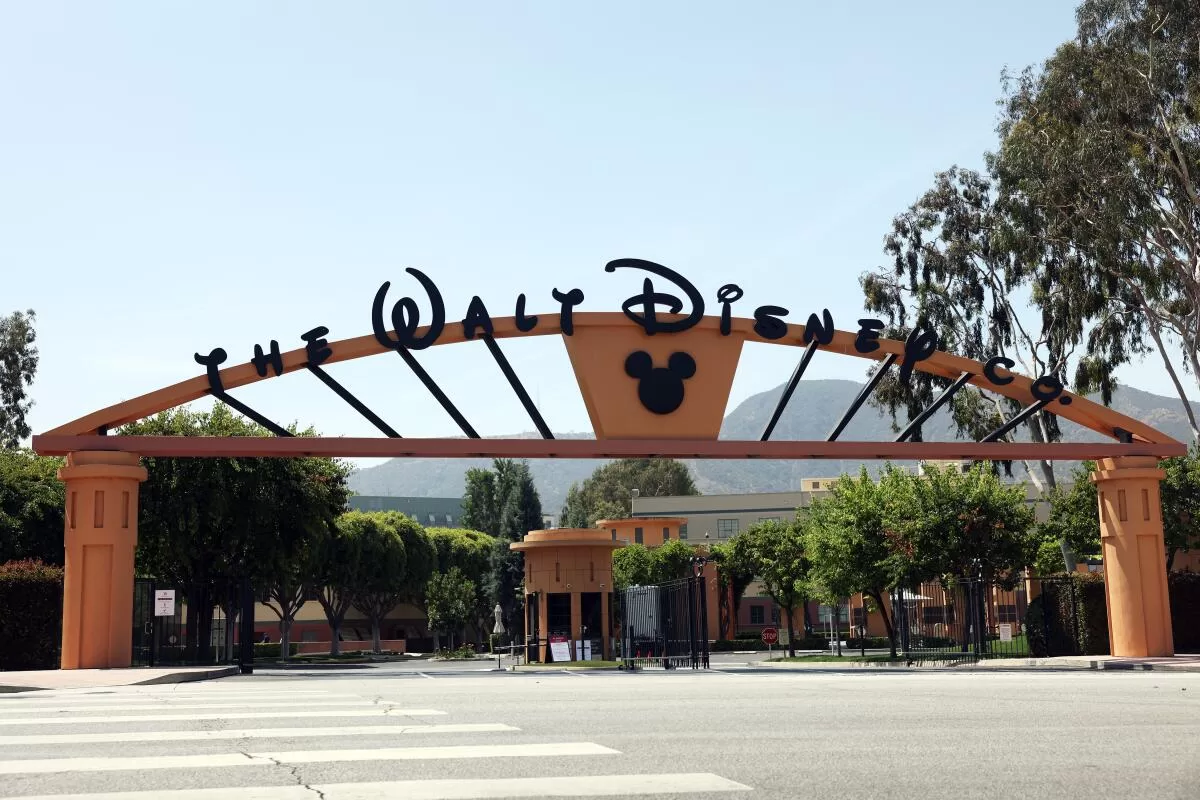Walt Disney Co.-owned channels, including ESPN and ABC stations, were knocked off DirecTV platforms Sunday after talks to reach a new distribution deal collapsed.
The blackout — which affects DirecTV’s nearly 11 million customer homes — hit before the kickoff of Sunday’s highly anticipated University of Southern California-Louisiana State University college football game and in the middle of ESPN’s coverage of the U.S. Open tennis tournament in New York. The impasse came at the deadline for a new distribution deal after weeks of haggling between the two companies over contract terms and fees that Disney charges to carry its programming.
Without an agreement, DirecTV lost its rights to carry Disney channels.
“The Walt Disney Co. is once again refusing any accountability to consumers, distribution partners, and now the American judicial system,” Rob Thun, chief content officer at DirecTV, said in a statement. “They want to continue to chase maximum profits and dominant control at the expense of consumers — making it harder for them to select the shows and sports they want at a reasonable price.”
Sports fans will quickly feel the pinch. In addition to college football on ESPN and ABC, the new NFL season begins later this week. ESPN is set to start its season with a “Monday Night Football” game Sept. 9 between the San Francisco 49ers and New York Jets, in which Jets quarterback Aaron Rodgers is expected to return after suffering an injury a year ago.
Disney’s eight ABC stations, including KABC-TV Channel 7 in Los Angeles, are no longer available on DirecTV. That means viewers of local news and “Jeopardy,” “Wheel of Fortune,” “Good Morning America” and “Jimmy Kimmel Live” will be without some of their favorite shows. Customers in Fresno, San Francisco, Chicago and New York also lost access to their local ABC station.
Other Disney-owned channels, including Freeform, FX and National Geographic, are included in the outage.
“While we’re open to offering DirecTV flexibility and terms which we’ve extended to other distributors, we will not enter into an agreement that undervalues our portfolio of television channels and programs,” read a statement from Disney Entertainment heads Dana Walden, Alan Bergman and ESPN Chairman Jimmy Pitaro. “We urge DirecTV to do what’s in the best interest of their customers and finalize a deal that would immediately restore our programming.”
It’s not clear how long the blackout will last. A year ago, a similar tussle between Disney and Charter Communications, which operates the Spectrum TV service, resulted in a 12-day blackout of Disney channels.
“I don’t think a blackout is a good dynamic for anybody, especially not the consumer,” Justin Connolly, Disney’s president of platform distribution, said last week. “Let’s roll up our sleeves … and let’s get something done that both sides can execute.”
The Labor Day Weekend clash reflects the television industry’s economic strain.
The shift to streaming and resulting cord-cutting has devastated pay-TV companies. DirecTV has lost more than half of its subscribers in the last decade. The El Segundo company now has about 11 million subscribers, according to industry estimates.
This year marked the worse-ever industry drop in pay-TV subscribers, according to the MoffettNathanson financial research firm. During the first quarter, the industry lost nearly 2.4 million pay-TV homes in the U.S. — a 12% year-over-year decline, the firm said in a recent report.

Other Disney-owned channels, including Freeform, FX and National Geographic, are included in the outage. Above, Walt Disney Co.’s headquarters in Burbank.
(Dania Maxwell / Los Angeles Times)
Subscriber declines have squeezed Disney.
The Burbank entertainment company has long relied on billions of dollars in programming fees that it receives annually from DirecTV and other providers. The fees are calculated, in part, by the number of subscribers that receive the channels.
In addition, Disney’s ESPN has historically been the most expensive basic cable channel, costing distributors nearly $10 per month per subscriber home. Disney has sought to maintain those premiums to help pay for its pricey sports rights contracts, including long-term NFL and NBA deals.
The challenges set the stage for contentious contract talks at DirecTV’s El Segundo headquarters.
The environment has changed dramatically since the last time the two companies hammered out an accord. That was in 2019 when DirecTV was wholly owned by AT&T. Since then, the phone giant has spun its television distribution group into a separate entity and taken on a private equity partner, TPG, to manage the business.
For the past year, DirecTV executives have been working on plans to increase its offerings to consumers.
DirecTV wants to offer genre-themed packages — think sports or general entertainment — to provide cheaper plans for customers who refuse to pay $100 or more each month for a traditional bundle with more than 100 television channels. Executives want to appeal to customers who have long pined for a way to sign up for only the channels they actually watch.
But, according to DirecTV, existing contracts with programmers prevent it from widely offering customers curated packages.
“Instead of allowing distributors like DirecTV to also develop smaller, more tailored packages at prices that reflect the value they get from the content, programmers have continued to impose and enforce strict bundling requirements,” DirecTV said in a position paper in late August.
The expiration of the 2019 distribution deal with Disney has given DirecTV an opening to try to change contract terms.
The satellite TV company said it has asked Disney to ease a key distribution requirement — minimum penetration rates. For example, Disney’s deals require that DirecTV and other distributors provide ESPN to a minimum of nearly 80% of its customer base.
DirecTV maintains that such “antiquated” penetration rates “force pay TV customers to subscribe to many channels they may not watch,” and the contracts limit DirecTV’s ability to offer smaller and less-expensive packages.
“People watch genres,” DirecTV Chief Content Officer Rob Thun said in a recent interview with The Times. “We think choice and control can be afforded to customers but that flexibility is not available to us today.”
But such a switch could reduce revenue flowing to Disney at a critical time.
Disney’s stock has been under pressure amid softness at its theme parks and resorts and shares have been trading near five-year lows. On Friday, Disney closed up nearly 1% to $90.38.
Last year’s outage of ESPN and other Disney channels on Charter’s Spectrum ended with an agreement that saw several smaller Disney channels, including Freeform and Disney Jr., dropped from Spectrum’s lineup.
In the end, both companies said they came away with a win.
Charter didn’t force the issue of penetration rates. Instead, Disney and Charter agreed to widen the reach of the Burbank company’s streaming services, including Disney+ into Spectrum homes.
Disney executives are hoping last year’s Charter agreement can provide a template for a pact with DirecTV.
“There has to be the path to a deal here,” Disney’s Connolly said.
